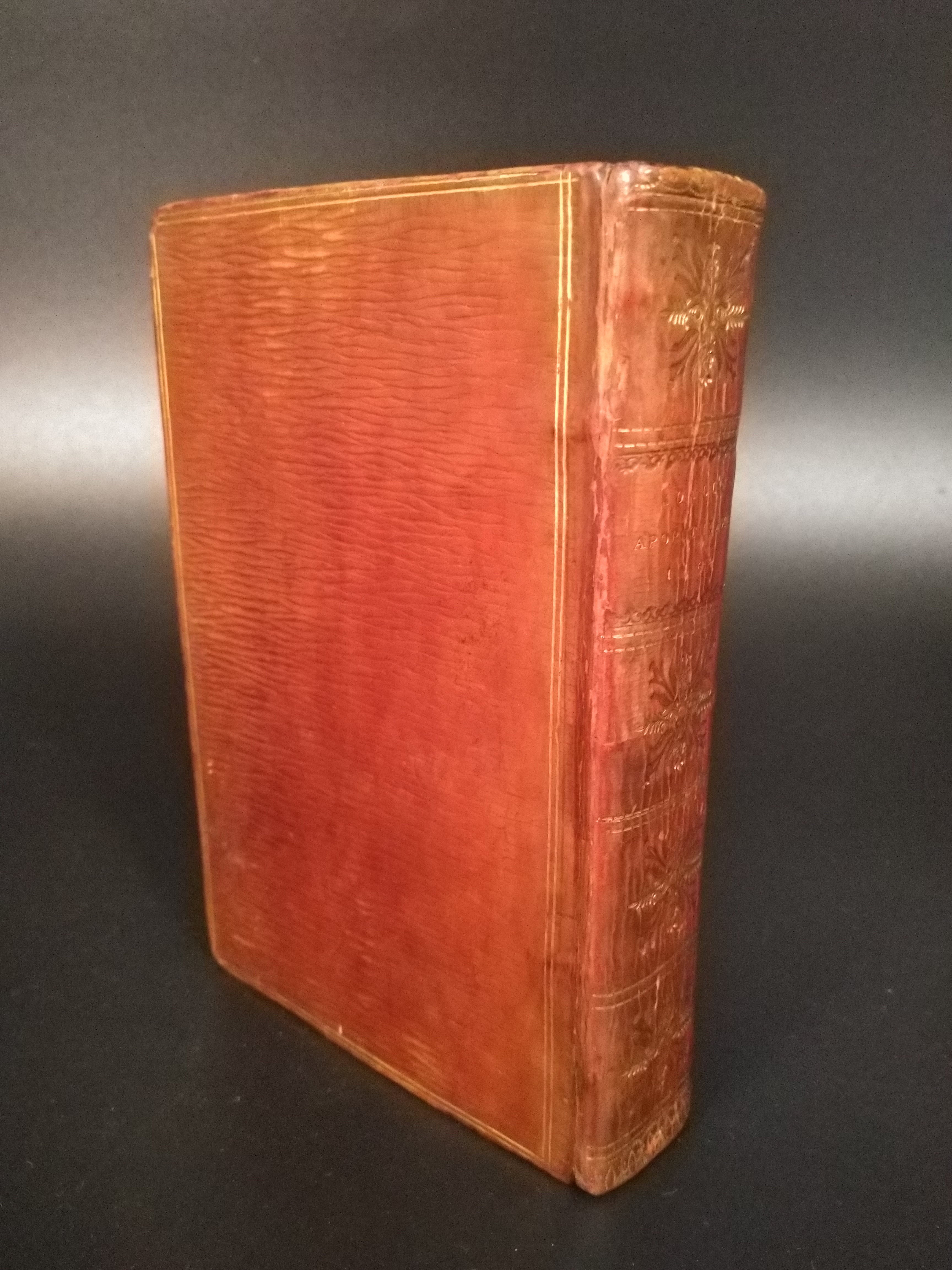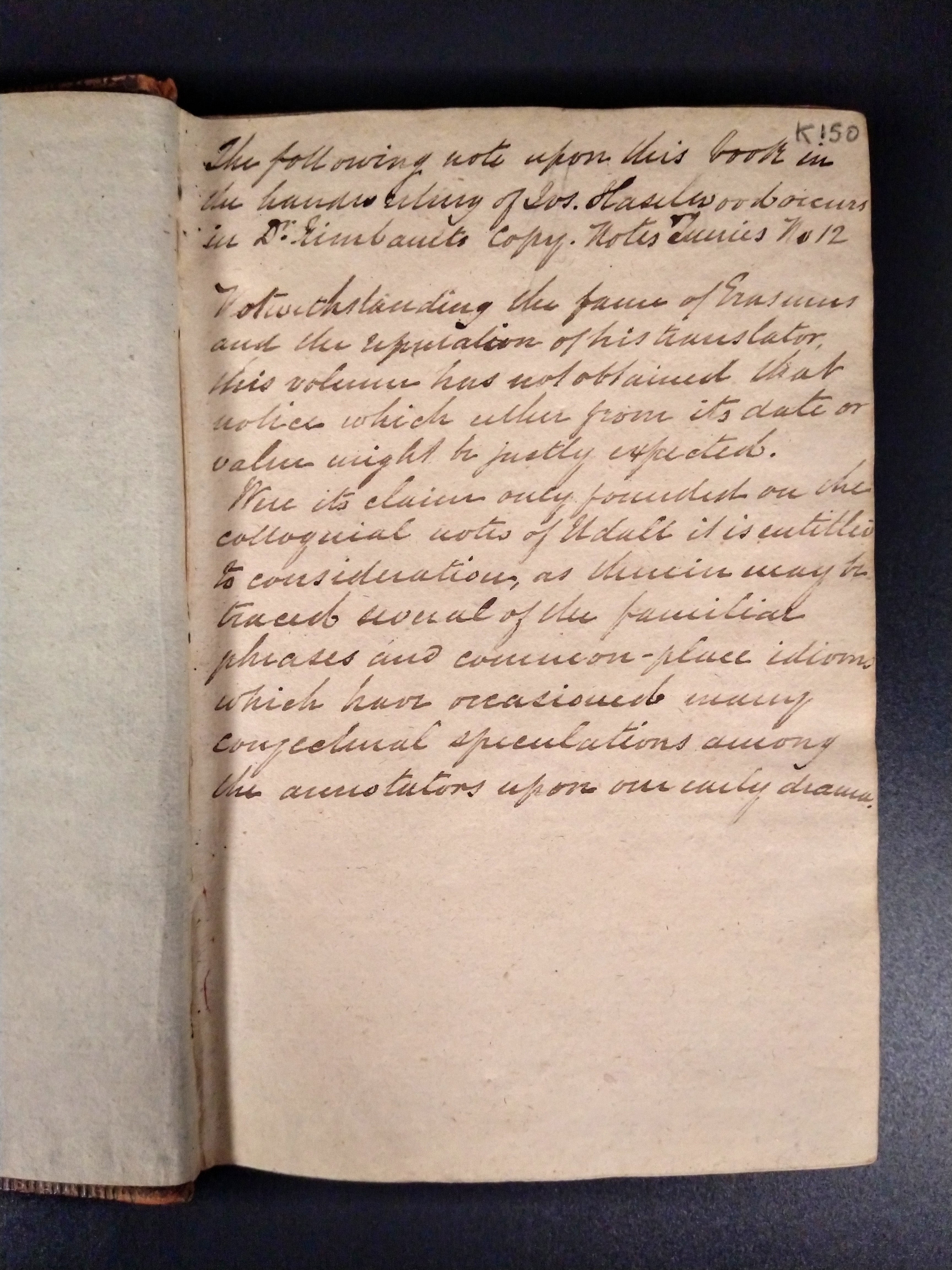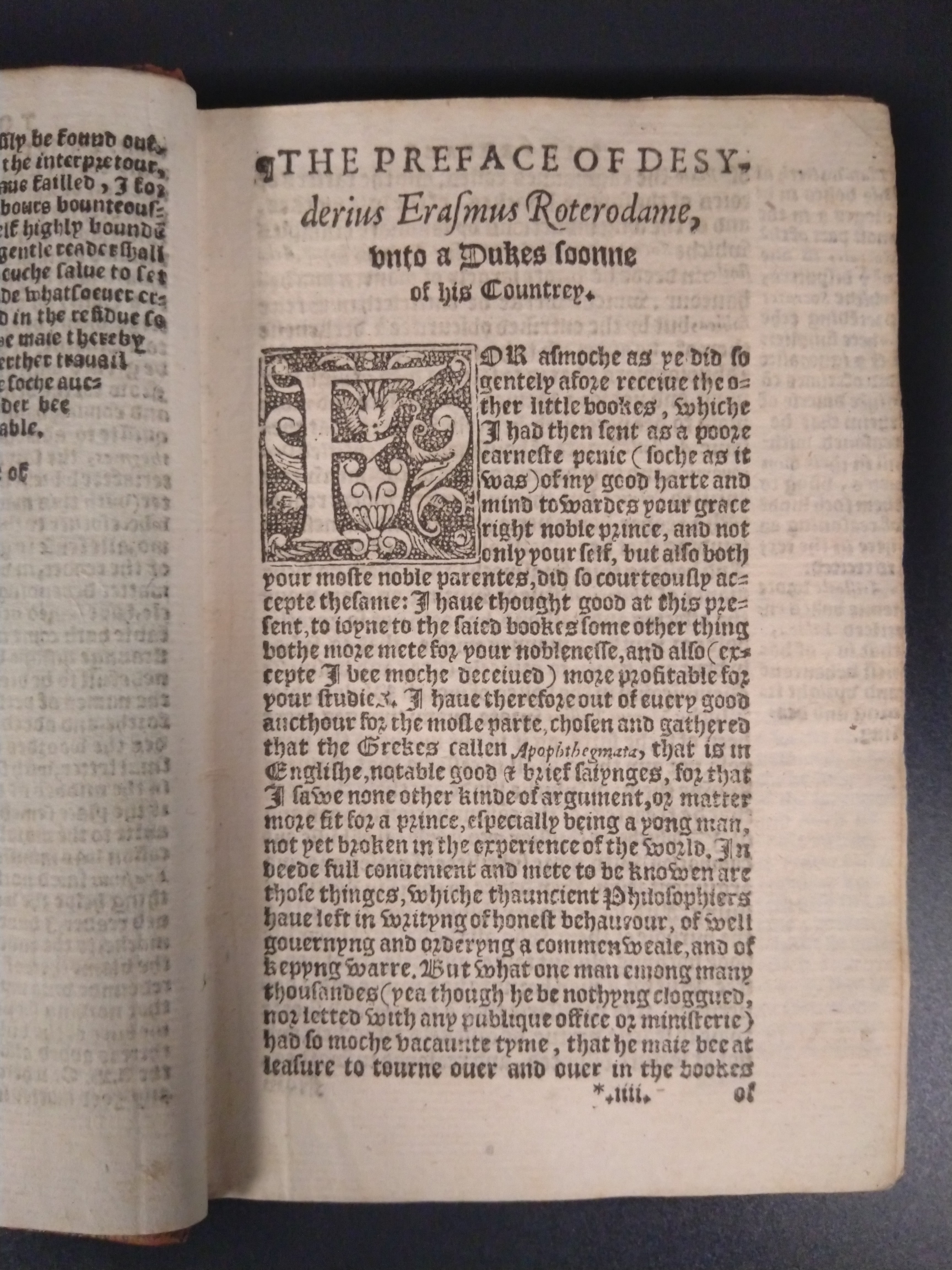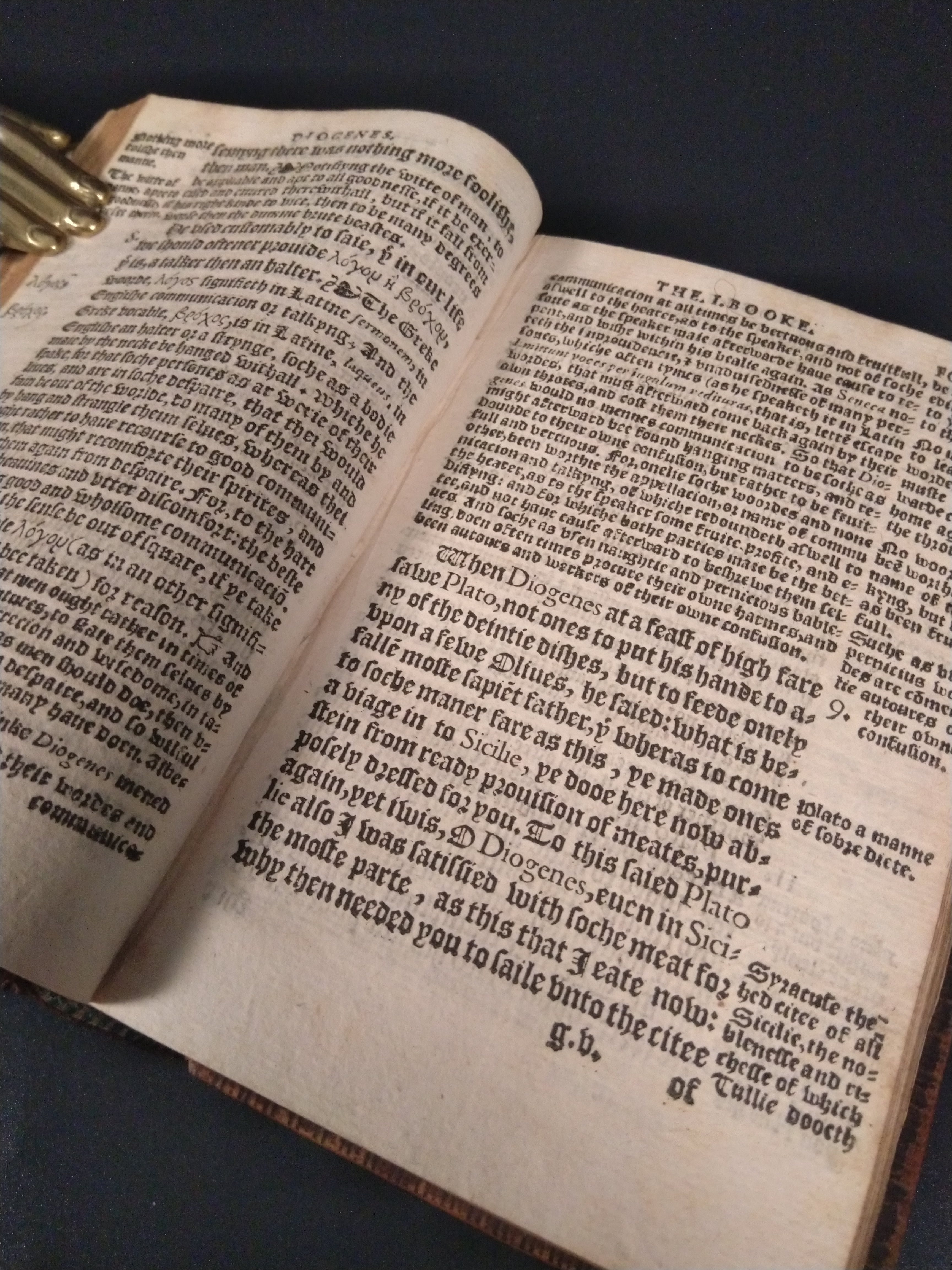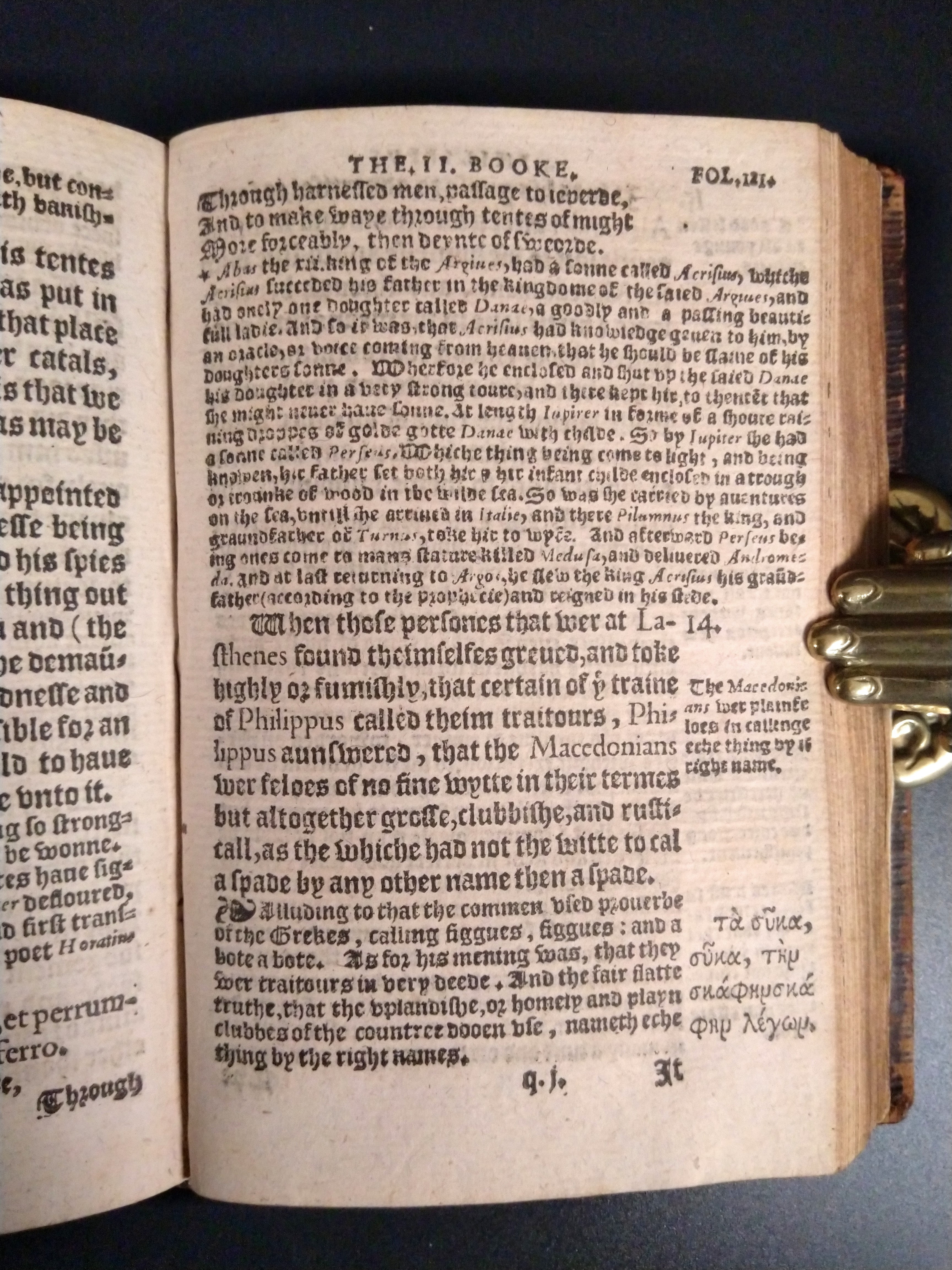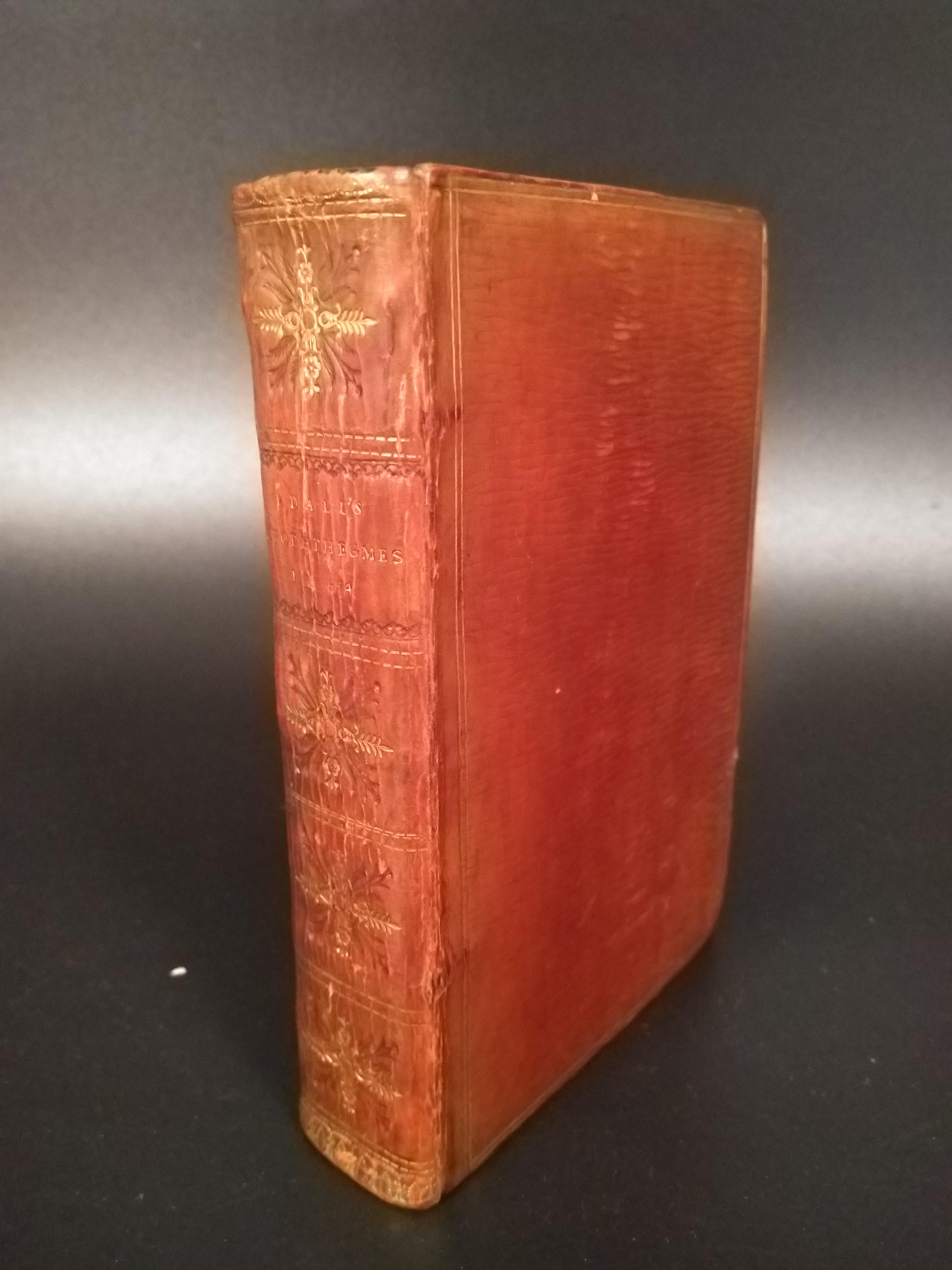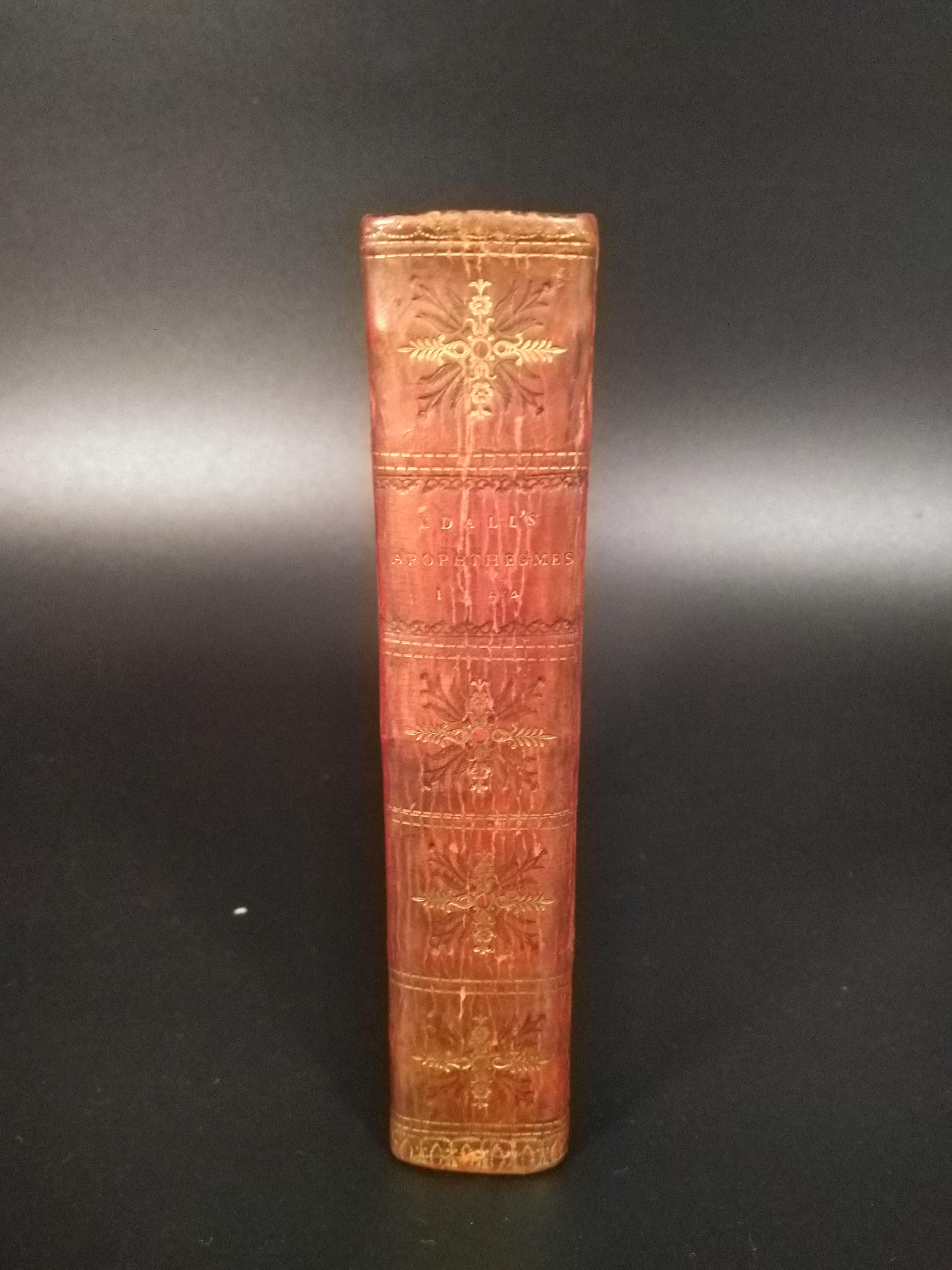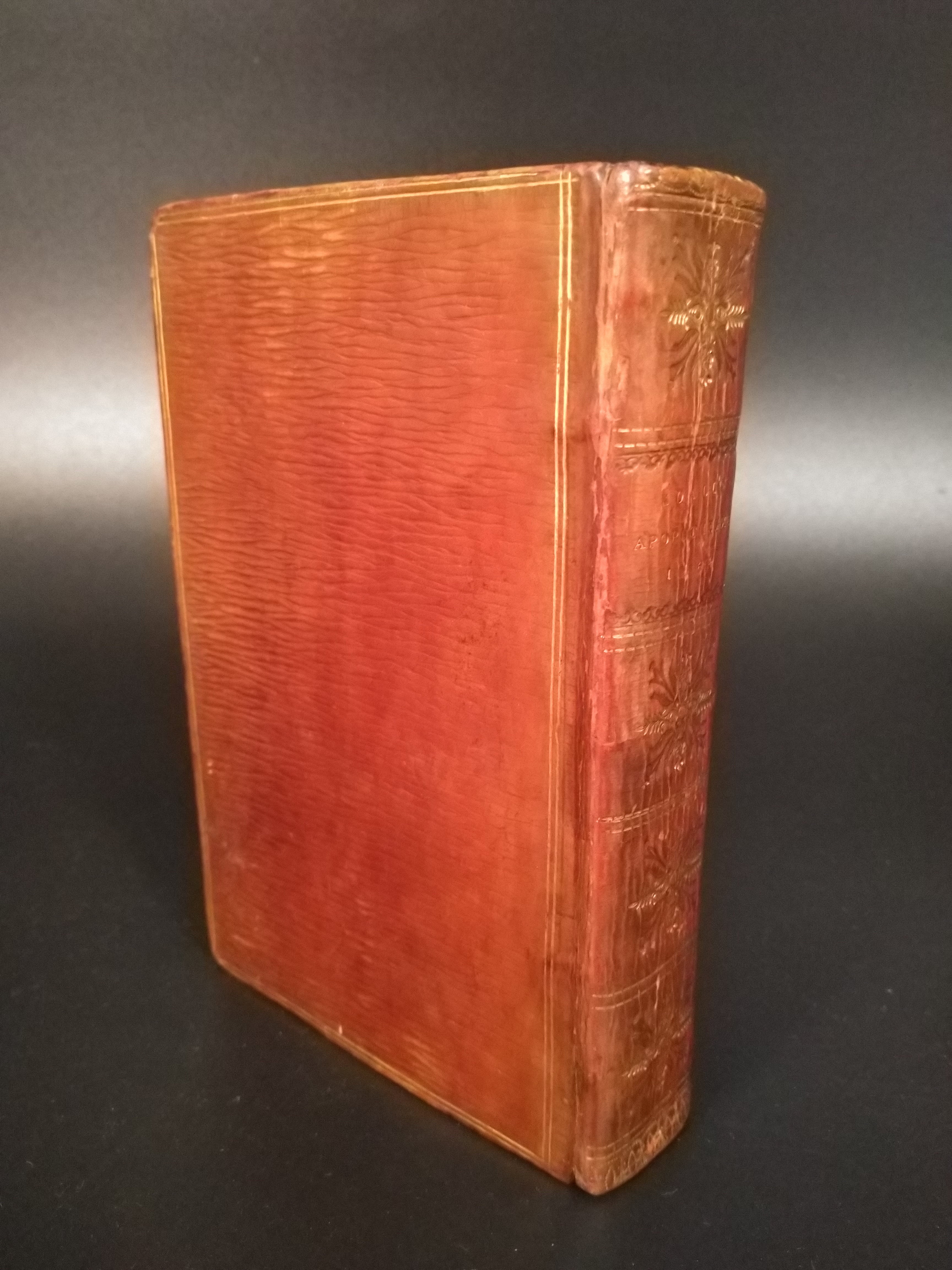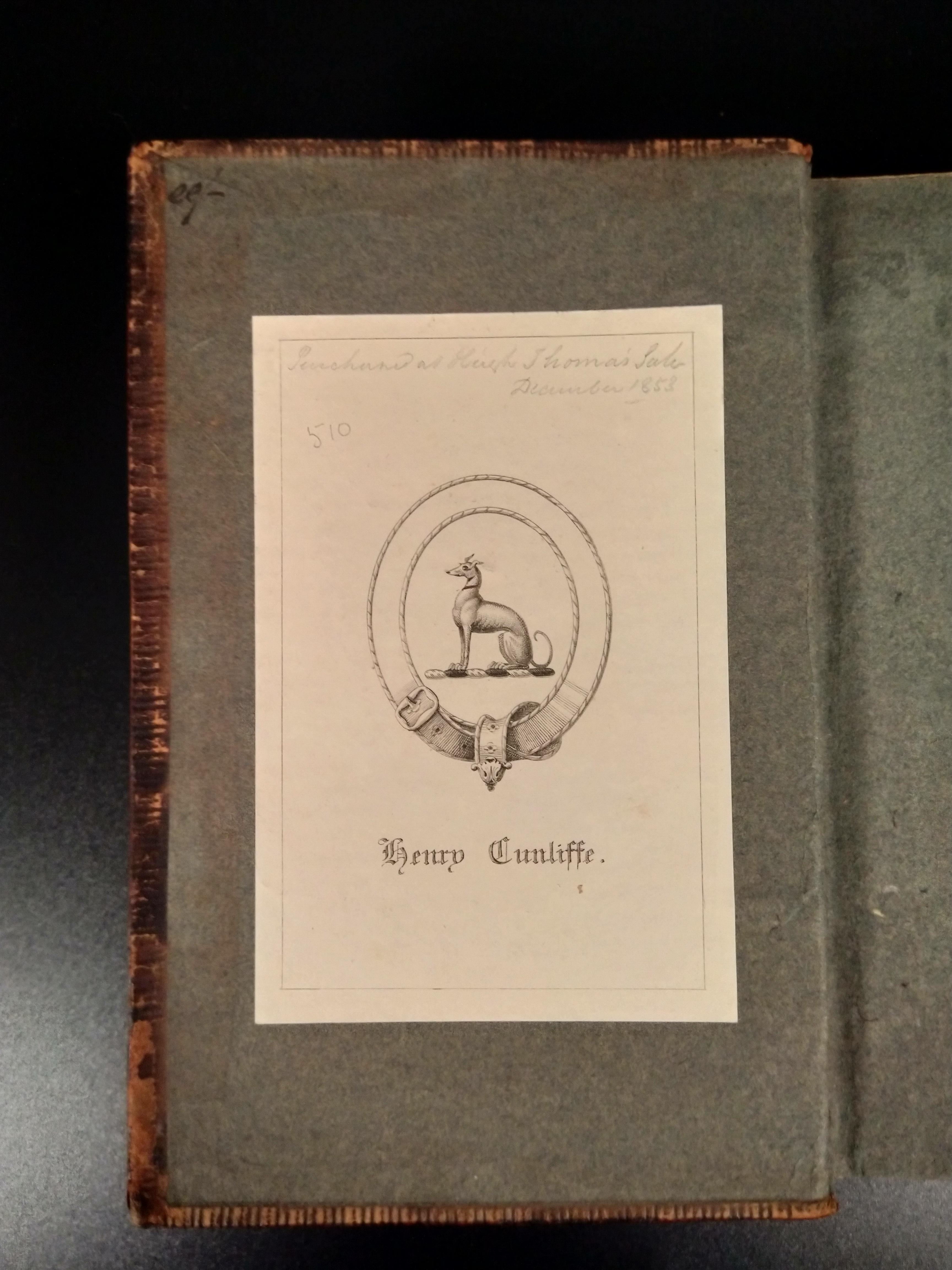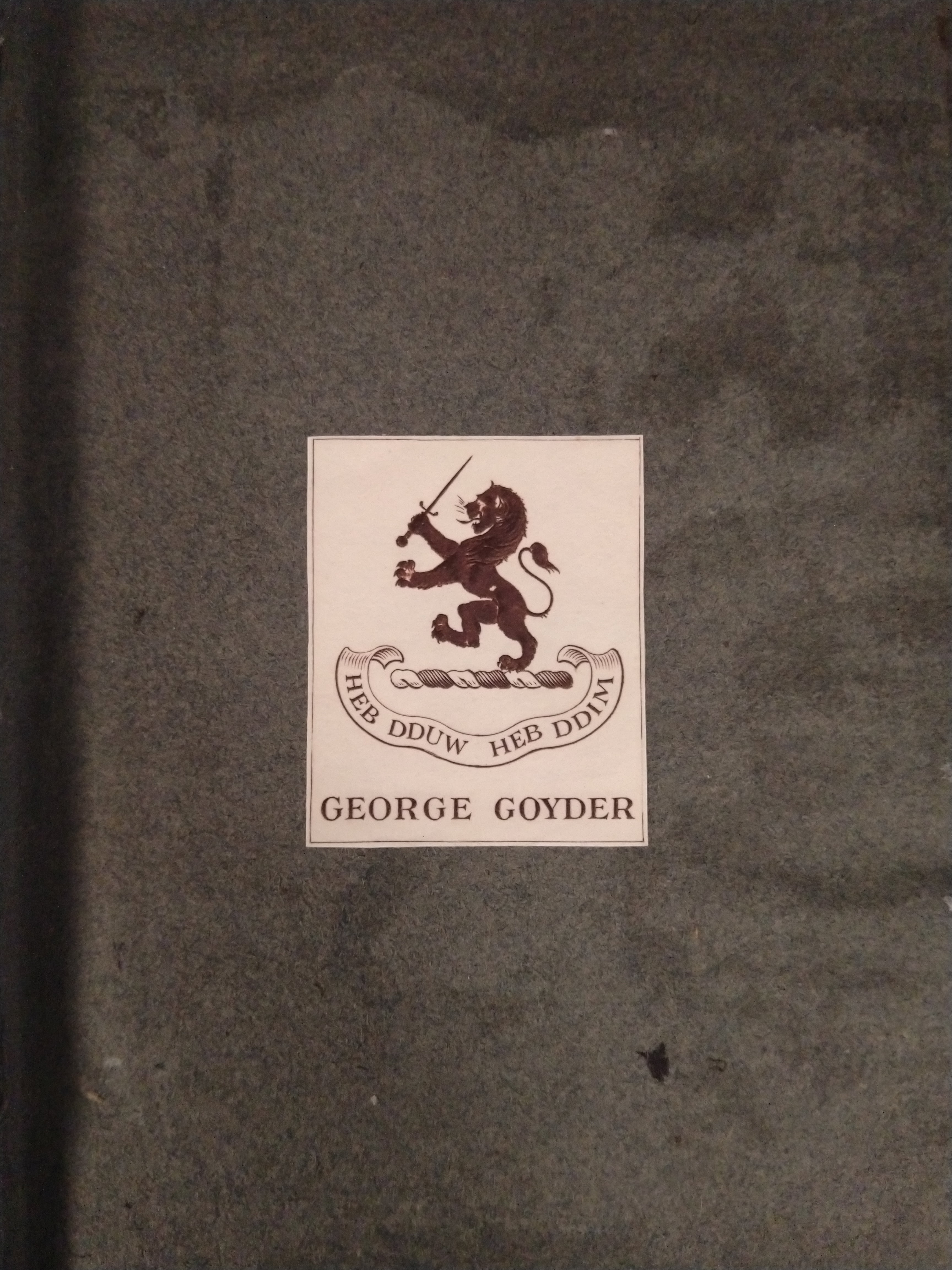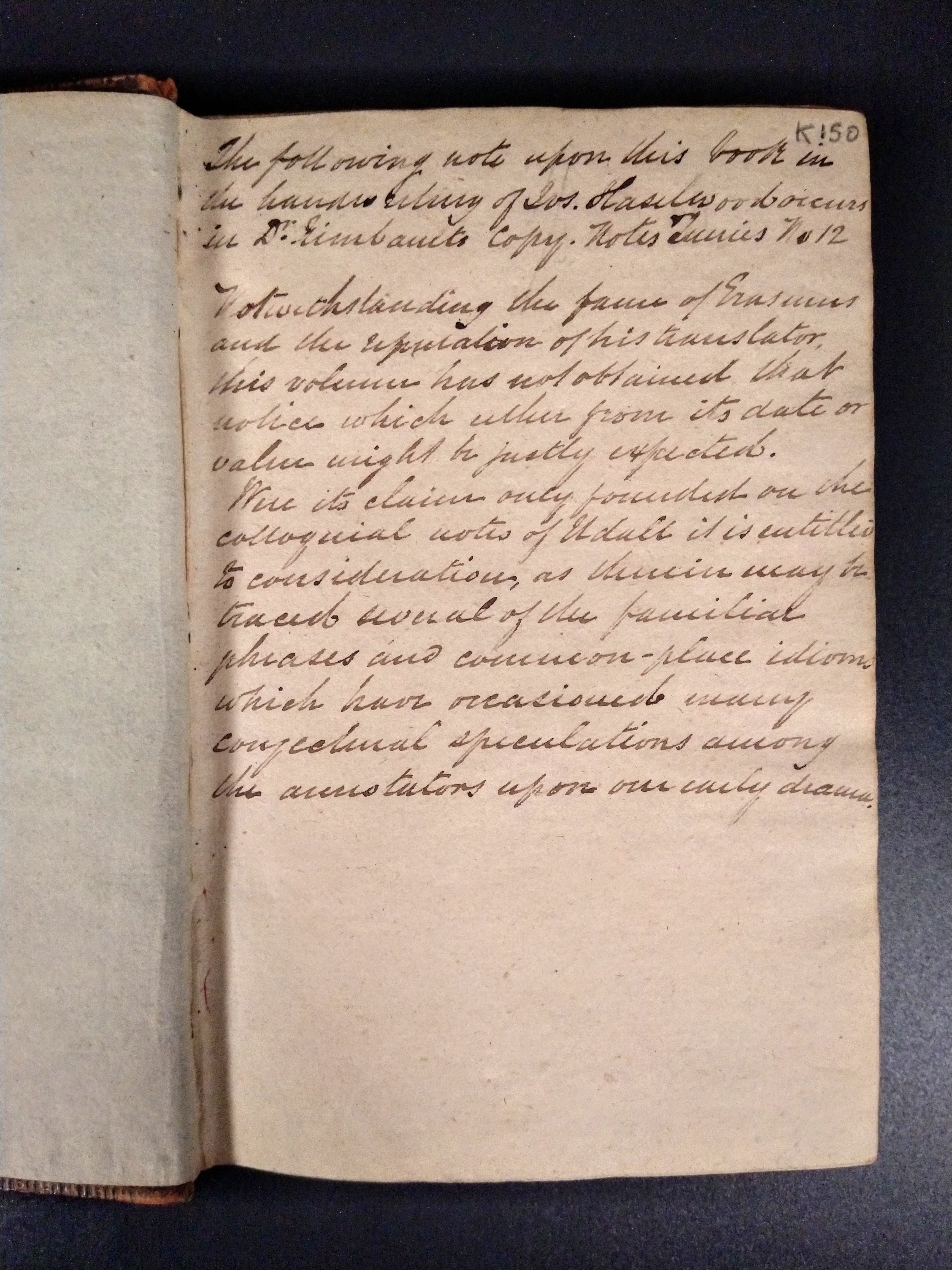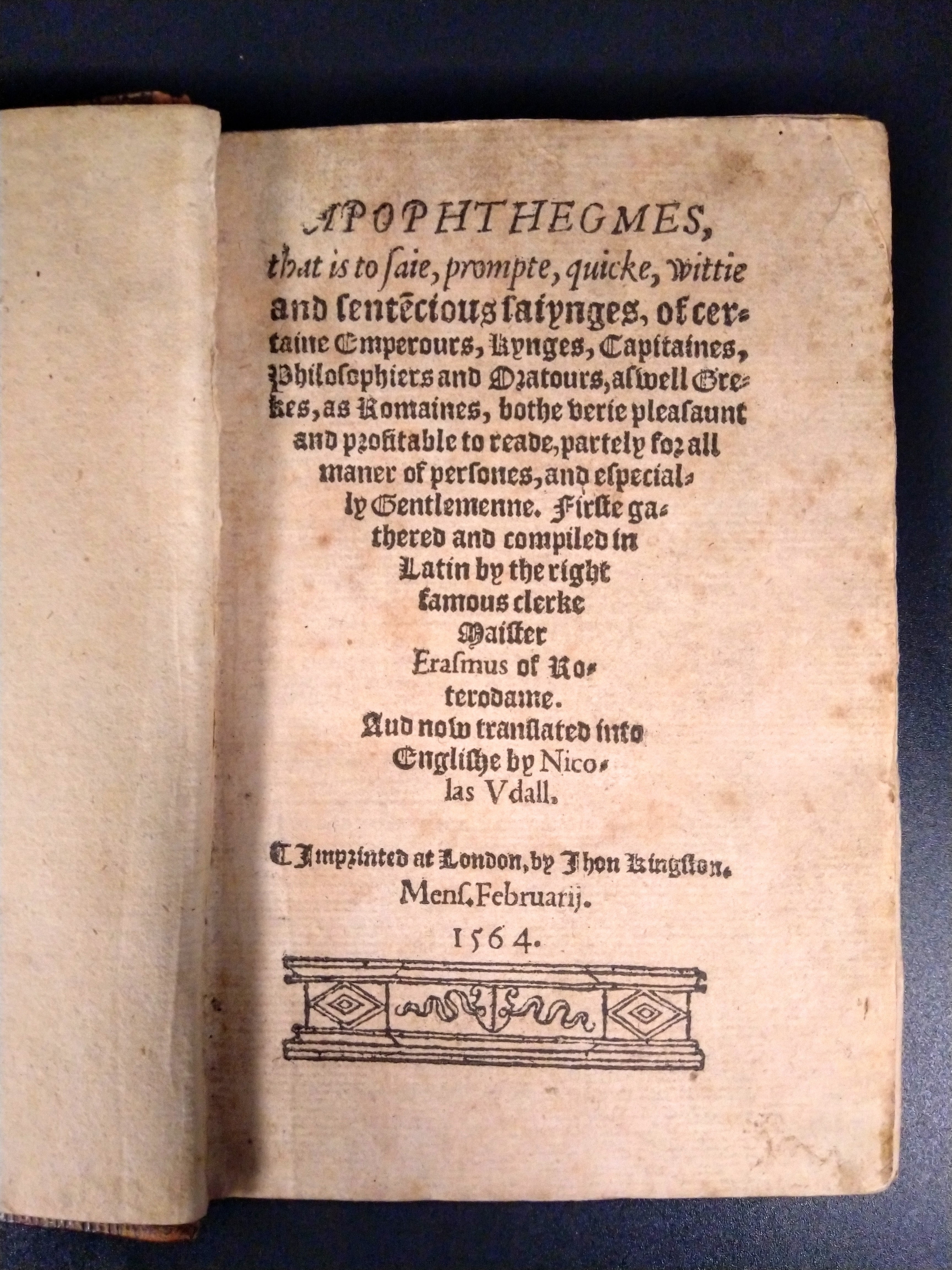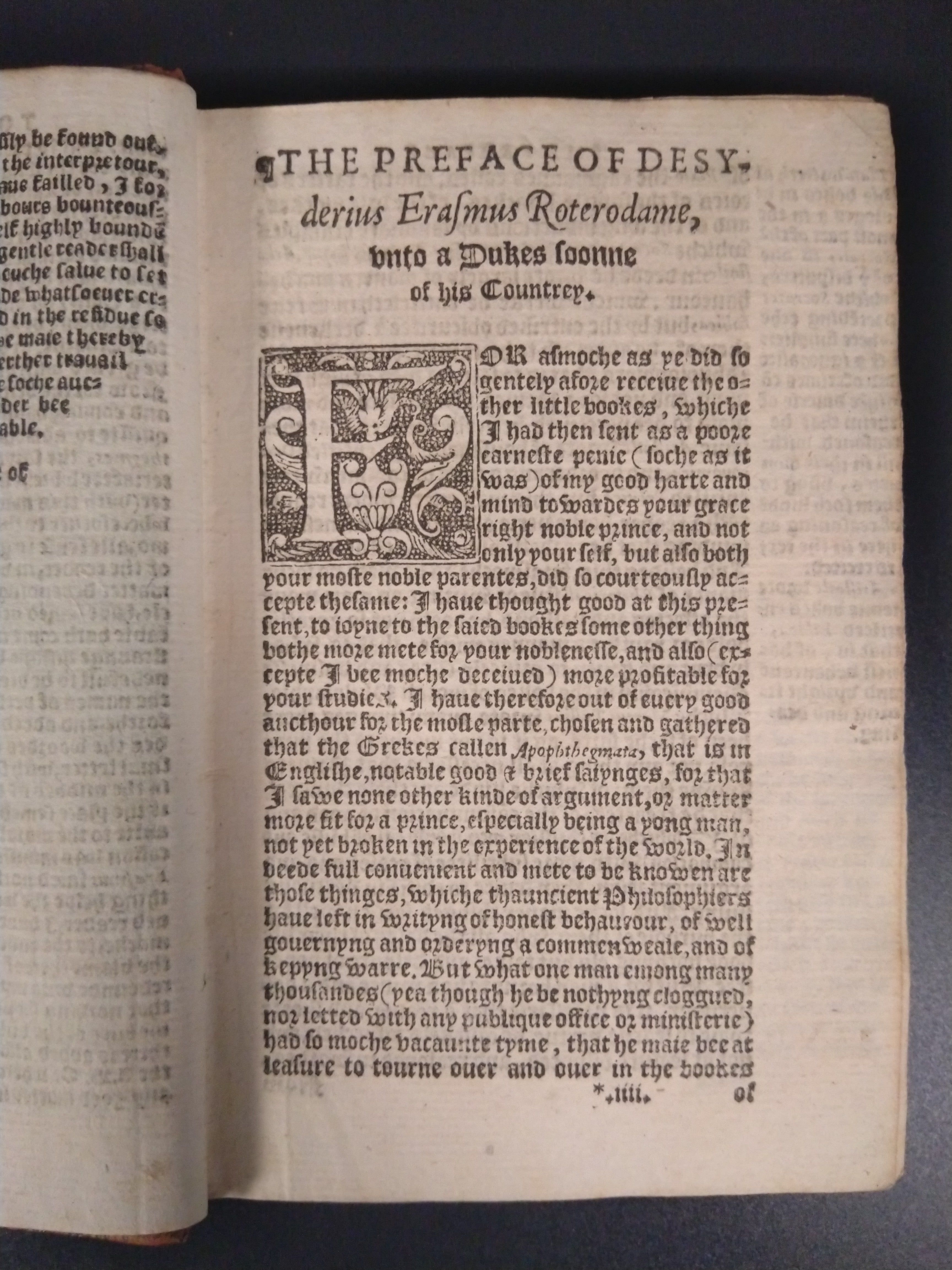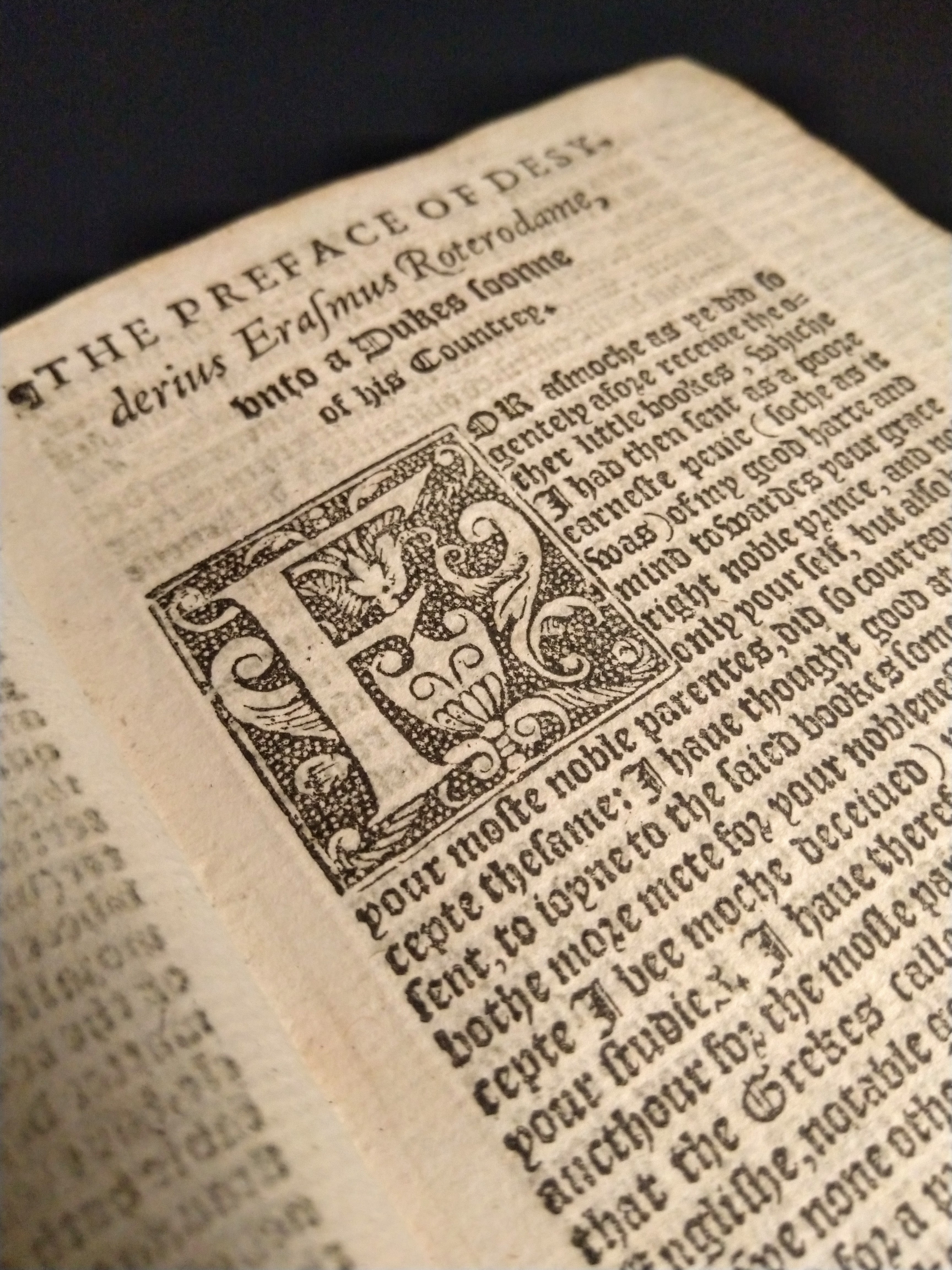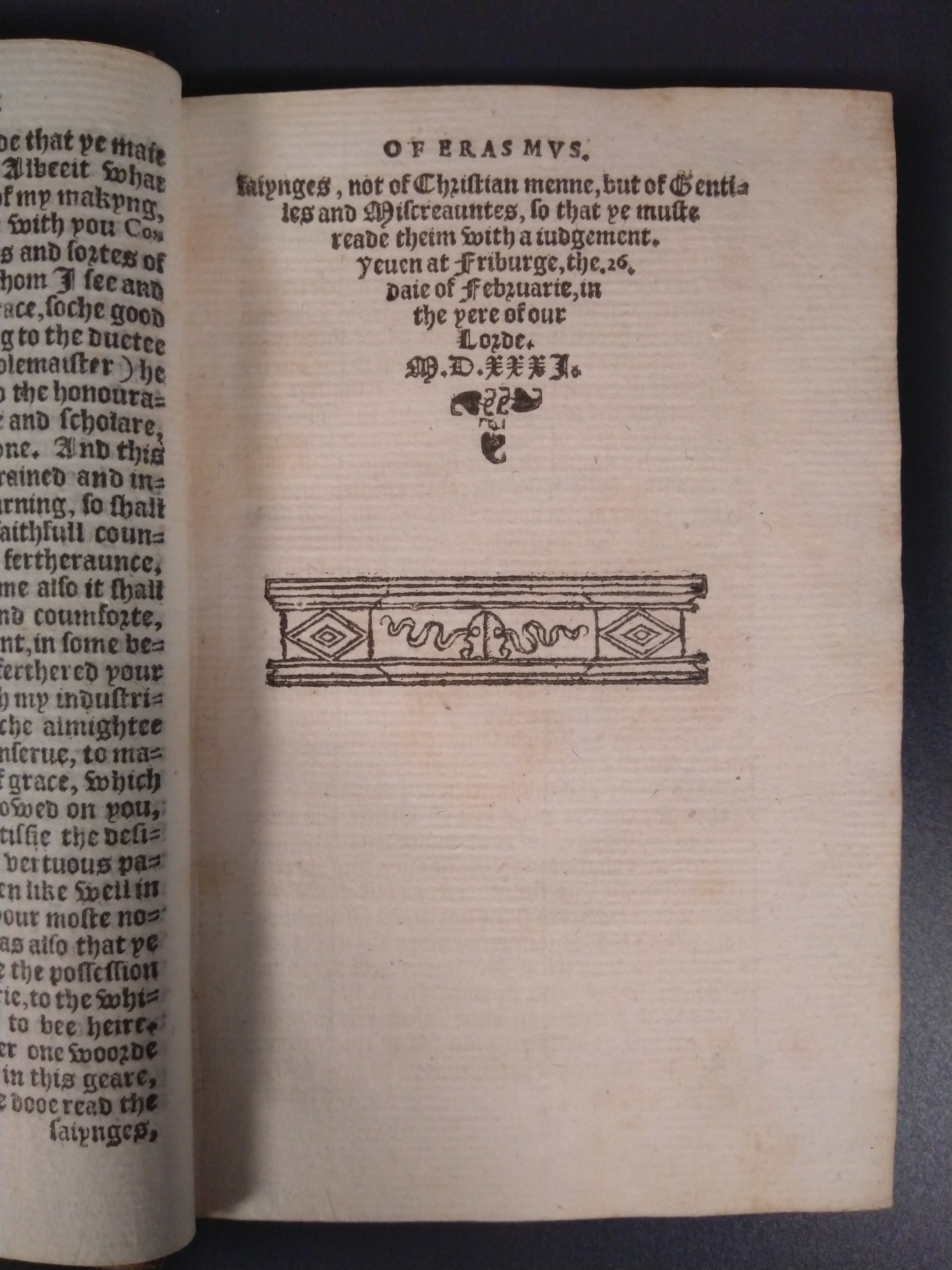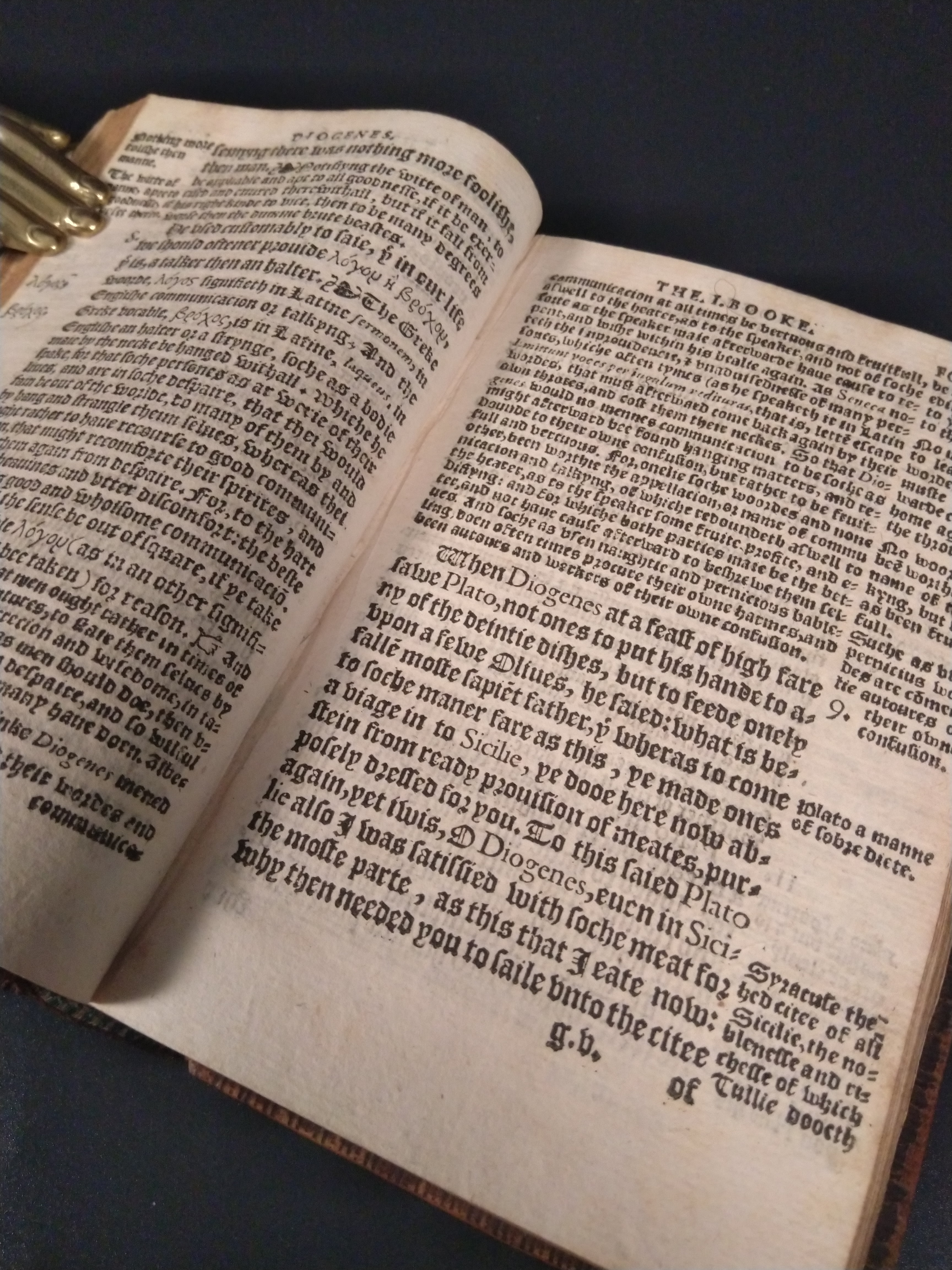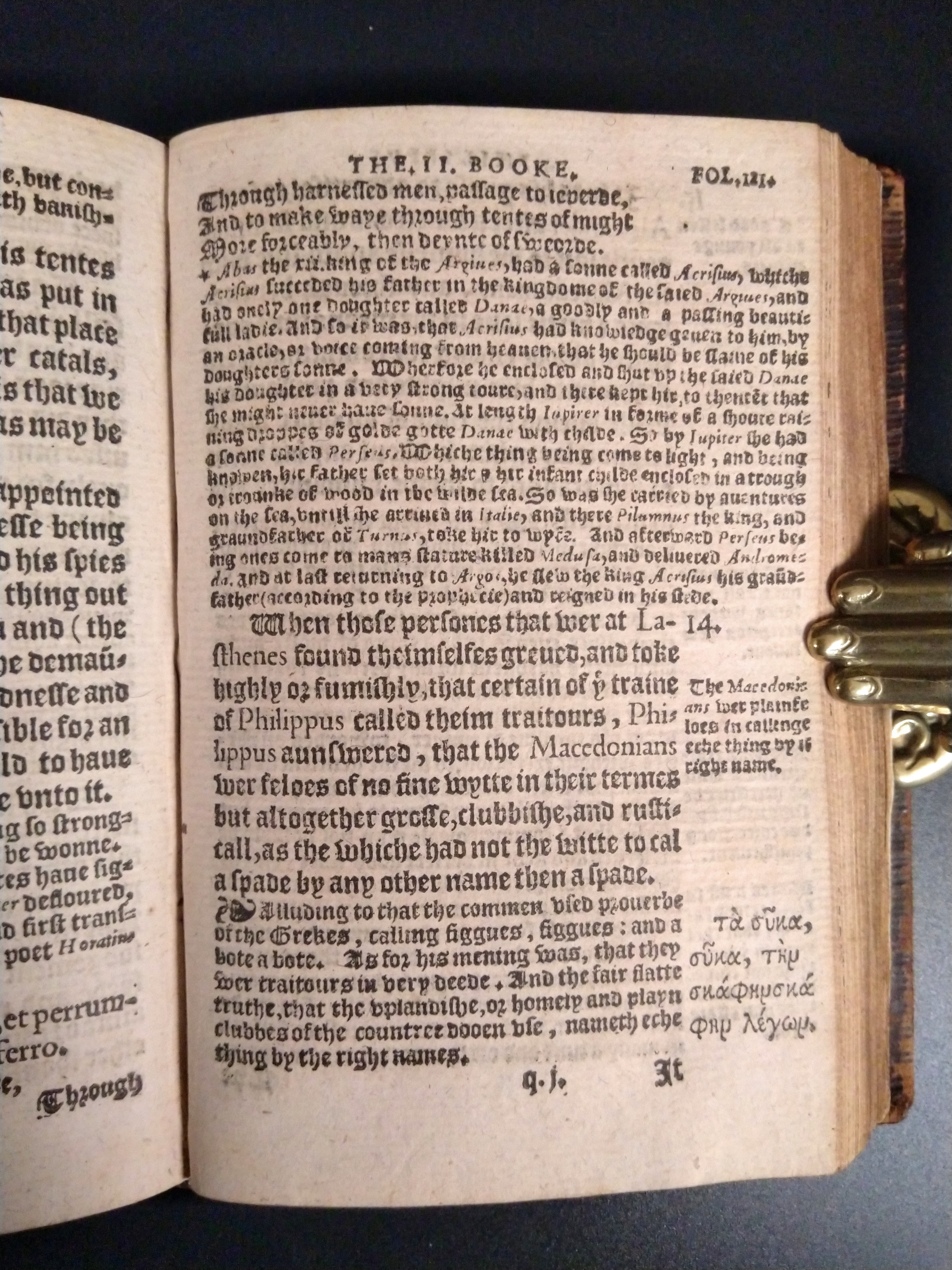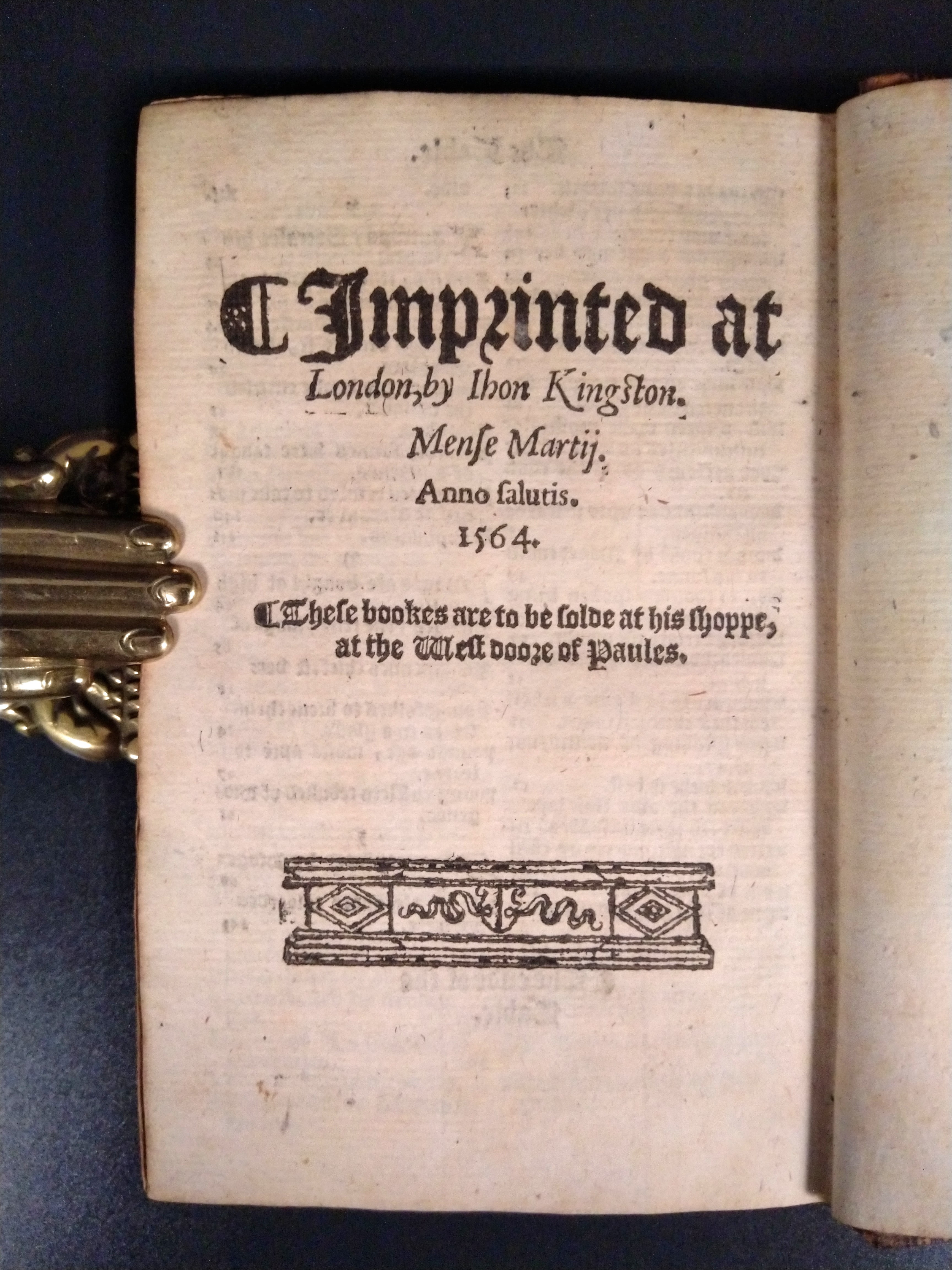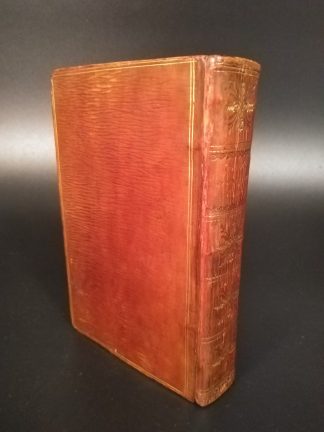ERASMUS, Desiderius
Apophthegmes, that is to saie, prompte, quicke, wittie and sente[n]cious saiyinges, of certaine emperours, kynges, capitaines, philosophiers…
London, by Ihon Kingston, mens. Februarij. 1564£19,500.00
8vo. ff. [xvi], 245, [xiii]. *-2* , a-z , A-H , I10. Last blank.Black letter, some Roman and Greek. Small woodcut tailpiece at foot of title, repeated in text, small white on black criblé and floriated initials, engraved armorial bookplate of Henry Cunliffe on pastedowm, with his pencil note “purchased at Hugh Thomas’ Sale, December 1853,”that of George Goyder on fly, note in early C19th hand on verso concerning the rarity and interest of the work. Light age yellowing, cut a little close at outer margin, fractionally shaving a few side notes, title a little stained, rare minor spot or mark. A very good copy in early C19th straight grained russet morocco, covers bordered with a double gilt rule, gilt ruled in compartments with gilt and blind tooling, edges gilt hatched, inner dentelles blind tooled
Extremely rare and important second edition of the translation of the third and fourth parts of Erasmus’ Apophthegms into English for the use of students by the English poet and playwright Nicholas Udall. “When Nicholas Udall undertook to translate this work he was the right man in the right place. Probably no English book so abounds with colloquialisms and idiomatic expressions. It is very valuable on that account. … this is a pleasant, gossipy book, full of wise saws, if not of modern instances. It may be considered one of the earliest English jest books. The wit in it is not as startling as fireworks, but there is a good deal of grave, pleasant humour, and many of those touches of nature which made the whole world kin.” Robert Roberts ‘Preface to the Reprint 1877.’
Nicholas Udall, a cleric, playwright, and Headmaster of Eton College, was charged with sodomy in 1541, for sexually abusing his pupils. In his case, the sentence was commuted to imprisonment and he was released in less than a year. He went on to become headmaster of Westminster School. “An Oxford man, for a while he was a fellow and tutor at Corpus Christi College; through his known purchase of Lutheran books from Thomas Garrett, an Oxford bookseller who sympathised with Lutheran doctrines, in about 1525, Udall became known as one of the earliest adherents of Protestant theology among Oxford tutors. He was appointed headmaster of Eton in 1534, and is best remembered today for the creation of what is called the first comedy in English, ‘Ralph Roister Doister’, strongly based on the Latin playwright Terence, in the 1540s or 1550s. .. In the 1540’s he translated with others, under Catherine Parr’s patronage the two volumes of the Paraphrases of the New Testament of Erasmus. .. In September 1542 he published the first English version of the third and fourth books of Erasmus’s Apophthegms.” David Daniell ‘William Tyndale: A Biography’.
“The Apophthegmata (1531) constitute one of the largest collections of attributed quotations in the Renaissance. The first edition contains 2290 apophthegms, whilst subsequent editions contain over 3000. It is certainly the fullest and most influential Renaissance collection of Cynic sayings and anecdotes, by virtue of the fact that the quotations are organised according to speaker, not commonplace. This forms part of Erasmus’s educational method. The absence of headings encourages the creation of an image of the Philosopher in question, Erasmus’s definition of an apophthegm being a brief and witty expression of someone’s personality, which in turn allows young readers to form their own personalities… According to Erasmus’ preface, there is nothing more suitable for a young prince than apophthegms. Erasmus nonetheless often adds brief commentaries to the apophthegm, to point his reader in the right direction or even to argue against a particularly dangerous ancient saying. .. During the sixteenth century, the Apophthegmata were reprinted 90 times and there were 12 translations into 4 different vernacular languages.” Hugh Roberts. ‘Dogs’ Tales: Representations of Ancient Cynicism in French Renaissance Texts.’
A rare and important work.
ESTC S101673. STC 10444. Lowndes 784. Not in Pforzheimer. or Grolier.In stock


